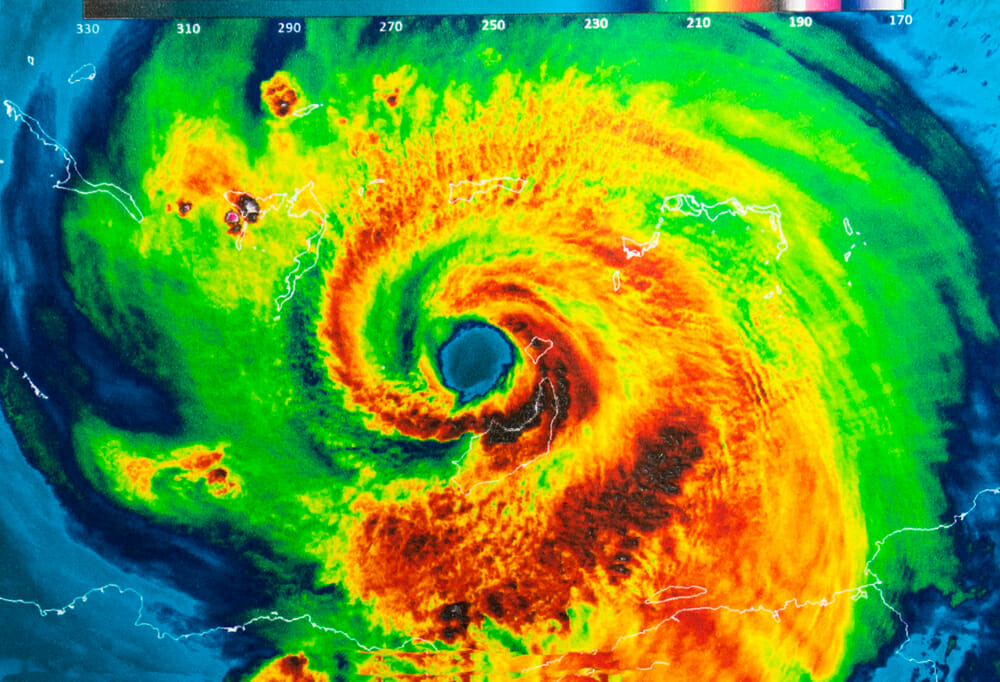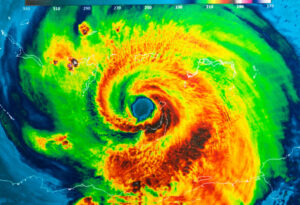Introduction
Ever been caught in the maze of an insurance claims process for property damage? When your commercial or residential property suffers an unexpected disaster, the added stress of facing piles of paperwork, unfamiliar lingo, and the ambiguity of the claim’s value, can quickly escalate. Understanding public adjuster fees for property damage claims can make a significant difference and reduce your pain in these tough times.
Brief Overview of Public Adjusters
Public adjusters are licensed professionals who represent you, the policyholder, in the insurance claim process. Unlike insurance adjusters who are employed by the insurance company, a public adjuster works in your best interest. They bridge the gap between you and the insurance company, ensuring a fair and accurate claim assessment.
Typically, public adjusters are paid based on a percentage of the claim amount, although the exact percentage varies by state and the complexity of the claim. Therefore, it’s in the interest of a public adjuster to get you the highest possible settlement.
| Public Adjuster | Insurance Adjuster | |
|---|---|---|
| Hired by : | The policyholder | The insurance company |
| Represents: | The policyholder’s interests | The insurance company’s interests |
| Paid by: | A percentage of the claim amount | A salary/wage by the insurance company |
| Goal: | Maximizes the claim’s payout for the policyholder | Ensures the insurance company doesn’t overpay |
Role of Public Adjusters in Property Damage Claims
When dealing with property damage, having a public adjuster on your side can be a game-changer. These professionals focus on managing every facet of your claim, ranging from conducting a thorough on-site investigation to making critical decisions about coverage and payouts. By understanding the role of public adjusters, you can take an informed stance while approaching property damage claims.

Understanding the Fee Structures of Public Adjusters
When hiring a public adjuster for your property damage claim, it’s crucial to comprehend the cost implications. Public adjusters typically use four primary fee structures: hourly rates, flat fees, contingency fees, and retainer fees. Let’s delve into each one for a better understanding.
Hourly Rates
Although not the most common, some public adjusters do charge an hourly rate. This rate usually depends on the adjuster’s experience, their operating costs, and the type of policy your claim falls under. A cheaper rate doesn’t necessarily translate to better service. An experienced public adjuster, although possibly more expensive, is likely capable of handling your claim more efficiently and effectively.
Flat Fees
Flat fees are often used when dealing with large, straightforward claims with an obvious outcome. However, be cautious about what this flat fee covers. Sometimes, the advertised flat fee might not include additional costs. Therefore, it is crucial to establish the exact price before the contract is signed.
Contingency Fees
A contingency fee structure is commonly used by public adjusters. This means their payment is a percentage of the claim payout. It’s vital to understand how this will reduce your final payout, as the adjuster’s fee comes out of the claim settlement.
Retainer Fees
Retainer fees are less common but can be employed in certain situations. Like a lawyer’s retainer, this is an upfront cost that is typically deducted from future costs as the public adjuster works on your claim.
Each public adjuster may have their preference for one fee structure over the other, but the bottom line is that it should be clearly defined and agreed upon before entering any signed agreement.
At Insurance Claim Recovery Support, we believe in transparency and will always discuss our fee structure upfront. We understand that each claim is unique, and we’re committed to working with you to determine the best fee structure for your situation.
The goal is to ensure your claim is handled professionally and promptly, ultimately getting you the fair settlement you deserve. Understanding how public adjuster fees for property damage claims work is a crucial part of this process.

Pros and Cons of Hiring a Public Adjuster
Having a clear understanding of both the advantages and disadvantages of hiring a public adjuster for property damage claims helps in making a well-informed decision. So, let’s delve into the pros and cons.
Advantages of Hiring a Public Adjuster
1. Expertise: Public adjusters are experts in the insurance industry. They have a deep understanding of insurance policies, coverage, and the complexities of property damage claims. They accurately evaluate the extent of your property damage and determine a fair payout amount. This expertise is particularly beneficial when insurance companies attempt to undervalue claims to save money.
2. Saves Time and Stress: The insurance claims process can be time-consuming and stressful. Public adjusters handle the claims process on your behalf, saving you time and alleviating the stress associated with it. They ensure all aspects of your claim are meticulously documented and substantiated, often resulting in a higher overall payout.
3. Minimizes Out-of-Pocket Expenses: By accurately determining the full extent of your loss, a public adjuster can help avoid or minimize out-of-pocket expenses. When property owners handle claims on their own, they might overlook certain damages or fail to fully document their loss. A public adjuster ensures all losses are accounted for and adequately documented.
Disadvantages of Hiring a Public Adjuster
1. Cost: Hiring a public adjuster comes at a cost. They typically charge a percentage of the claim payout. This fee can be a downside if you’re working with a limited budget.
2. Potential for Miscommunication: With another party involved in communication with your insurance company, there could be potential for miscommunication.
3. Not Always Necessary: If your claim is straightforward or relatively small, you may be able to handle it yourself without incurring the cost of a public adjuster. Public adjusters prefer cases with significant payouts because their earnings are based on the final settlement amount. It can be challenging to engage a public adjuster for smaller claims, as they might not find them financially worthwhile.
4. Limitations: While public adjusters play a significant role in settling insurance claims, they do have limitations. They’re not licensed contractors or engineers, so they can’t make structural assessments or repair estimates.
At Insurance Claim Recovery Support, we understand these pros and cons. Our team is committed to ensuring you receive a fair and prompt settlement for your insurance claim. We aim to provide a balance between the benefits of our expertise and the potential costs, offering our clients maximum value.
Public Adjuster Fees in Different States
Different states have different regulations regarding the fees that public adjusters can charge. This can range from a fixed percentage to a sliding scale based on the size and complexity of the claim.
Public Adjuster Fees in Texas
In the state of Texas, public adjusters operate on a contingency fee basis and their charge cannot exceed 10% of the settlement of the claim. This means if your insurance settlement is $100,000, the public adjuster’s fee would be $10,000. This regulation is in place to protect policyholders from excessive fees and ensures transparency in the process. At Insurance Claim Recovery Support, we adhere to these regulations strictly.
Public Adjuster Fees in Pennsylvania
In Pennsylvania, the fees charged by public adjusters can range depending on the size of the claim. For claims under $10,000, public adjuster fees can range from 20% to 30%. For claims ranging from $10,000 to $50,000, the fee may be between 15% and 25%. For claims over $50,000, the charge will be 15% or less. This sliding scale reflects the complexity and time required to handle larger claims.
Public Adjuster Fees in Florida
Florida has specific regulations for claims resulting from a disaster that leads to a state of emergency declaration. In such cases, public adjuster fees are limited to 10% of the claim payment for the first year after the declaration. After this period, the fee limit rises to 20%. This regulation aims to ensure that property owners can access the services of public adjusters in times of emergency without excessive costs.
Public Adjuster Fees in California
The information on public adjuster fees in California is not provided in the research above. We recommend reaching out to a local professional or regulatory body to get accurate information.
At Insurance Claim Recovery Support, we are committed to transparency in our fee structure. We understand that every property damage claim is unique, and we work to provide the best value for our clients across different states.
Tips for Hiring a Public Adjuster
Now that you’ve got a good understanding of public adjuster fees for property damage claims, it’s time to shift our focus on a few key considerations when hiring a public adjuster. Ensuring their license, understanding the contract, and checking their experience and reputation are all critical steps in the hiring process.
Verifying the License of a Public Adjuster
Before you hire a public adjuster, verify their license. This gives you the confidence that they are trained professionals who are authorized to handle insurance claims in your state. You can check their license status through your state’s department of insurance or a similar regulatory body.
Understanding the Contract with a Public Adjuster
Before signing any agreement, make sure you fully understand the contract with your public adjuster. It should clearly lay out their fee structure, whether it’s a flat rate, hourly rate, or contingency fee. If they charge on a contingency basis, in some states like Florida, the fee is capped at 20% of the claim paid, reduced to 10% for claims made in the first year after a declared emergency. If anything is unclear, don’t hesitate to ask for clarification.
Importantly, the contract should also detail what services the adjuster will provide. For instance, it should specify that they will handle the entirety of the claim, including assessing the damage, learning your policy, and negotiating the highest payout. A reputable public adjuster will not pressure you to sign a contract before you’ve had a chance to review and understand it.
Checking the Experience and Reputation of a Public Adjuster
Experience matters in insurance claims. An experienced public adjuster will have the know-how to navigate complex claims and the negotiation skills to ensure you receive a fair settlement. Ask about the types of claims they have handled and whether they have experience dealing with your insurer. You can also check online reviews or ask for references to get a sense of their reputation.
The number of years an adjuster has practiced or the volume of claims they handle each year are not necessarily indicators of their experience level. As the National Association of Public Insurance Adjusters points out, a very experienced adjuster might only take on a dozen claims per year because they choose to work on large, complicated claims.
At Insurance Claim Recovery Support, we pride ourselves on our team of licensed and experienced public adjusters who are ready to help you navigate the complexities of your property damage claim. We believe in clear communication, fair fees, and exceptional service to help you recover what you’re due. Contact us today for a free property damage insurance claim evaluation.
How Insurance Claim Recovery Support LLC Can Help
After understanding the ins and outs of public adjuster fees for property damage claims, you might be wondering about the next step. This is where we, at Insurance Claim Recovery Support LLC, come into the picture.
Services Offered by Insurance Claim Recovery Support LLC
We offer comprehensive services that are tailor-made to help commercial, multifamily, and apartment property owners navigate the complex world of insurance claims. Our services are designed to ensure that you receive the maximum settlement possible in the shortest time frame. We represent your interests and not those of the insurance companies. Our team of public adjusters specialize in evaluating, documenting, and negotiating complex property damage claims on your behalf.
Our services include expertise in property damage claims such as those caused by fire, hail, hurricanes, tornadoes, and floods. These claims can be notoriously complex, but our team of seasoned professionals have the skills and experience to handle them effectively.
Unique Selling Proposition of Insurance Claim Recovery Support LLC
What makes us stand out from other public adjuster firms is our unwavering commitment to the interests of policyholders. We exclusively represent policyholders, ensuring that our efforts are always aimed at maximizing your recovery.
We operate on a ‘no recovery, no fee’ principle, meaning our success is directly tied to yours. You can be confident that we will work tirelessly to ensure you receive the compensation you deserve.
Our dedication to the policyholder sets us apart from other public adjusters who may serve both the policyholders and insurance companies, creating potential conflicts of interest. With us, you can rest assured that your needs and interests are our top priority throughout the claims process.
Another key differentiator is our highly rated customer satisfaction. We pride ourselves on offering personalized service, tailoring our approach to meet your unique needs and circumstances. This means you get a service that is as unique as your claim.
In conclusion, at Insurance Claim Recovery Support LLC, we are on your side. Our goal is to ensure you get the maximum settlement you deserve in the shortest time possible. If you’re dealing with a property damage claim and need expert assistance, reach out to us today. We’re here to help.
Conclusion
Recap of Key Points
We’ve explored the concept of public adjuster fees for property damage claims. We’ve discussed the different fee structures, including hourly, flat, contingency, and retainer fees. We’ve also highlighted the pros and cons of hiring a public adjuster, emphasizing the need to consider your specific situation and the complexity of your claim.
We’ve analyzed public adjuster fees in various states, including Texas, Pennsylvania, Florida, and California, showing how the charges can vary significantly by region and the nature of the claim. Additionally, we’ve provided tips for hiring a public adjuster, such as verifying their license, understanding the contract, and checking their experience and reputation.
Finally, we’ve highlighted how we at Insurance Claim Recovery Support LLC can help you navigate your property damage claims, ensuring you get a fair and prompt settlement.
Final Thoughts on Public Adjuster Fees for Property Damage Claims
Understanding public adjuster fees for property damage claims is crucial for any property owner looking to maximize their insurance settlement. While fees are a significant consideration, they shouldn’t be the only factor in your decision. The value a skilled and experienced public adjuster brings to your claim can far outweigh their fee.
At Insurance Claim Recovery Support LLC, we believe in transparency and fairness. We work on a contingency basis, which means we only get paid if you do. Our objective is to relieve you of the stress of dealing with insurance adjusters and ensure you get the settlement you rightfully deserve.
Dealing with property damage is tough, but navigating the insurance claim process doesn’t have to be. With the right support and guidance, you can get through this challenging time and move forward with confidence. We’re here to provide that support and guide you every step of the way.







